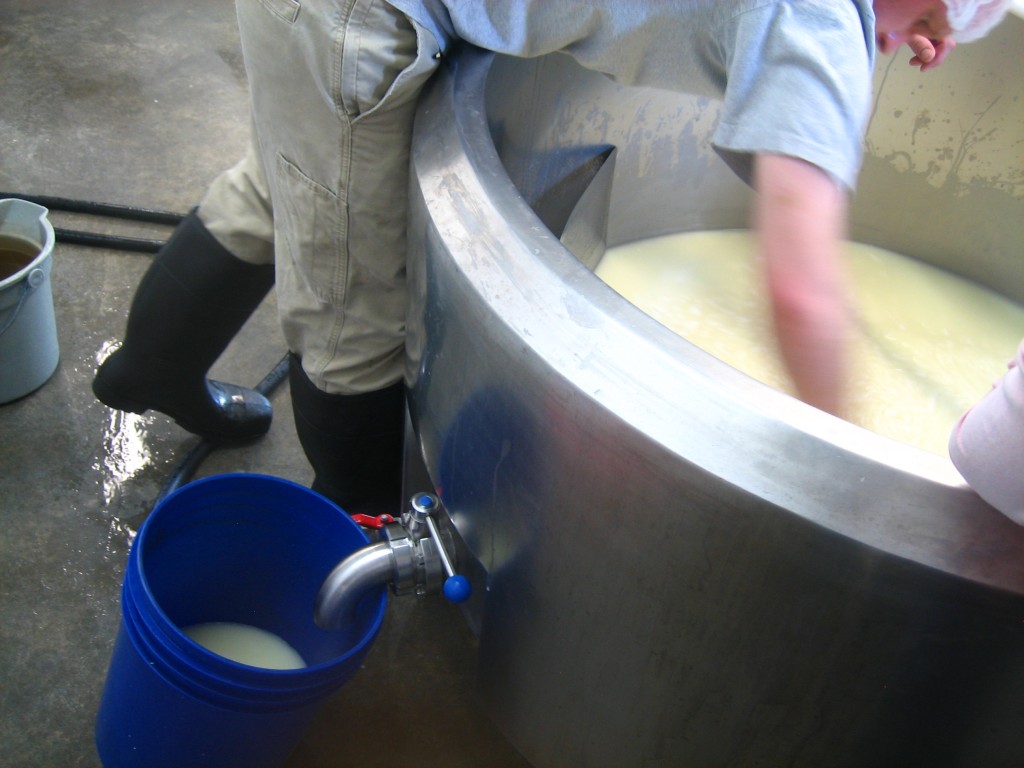Doug's broad shoulders and big muscles would fit right in on an athletic field, but you're more likely to find him bicep-deep in a vat of cheese curds. Apparently, cheesemaking is not always as romantic or easy as it sounds. Since Twin Maple Farm's official opening in March 2009, he's run into issues of sourcing (i.e. who can supply enough good milk to make cheese), land conservation (he lives and makes cheese on the farm), and - most obviously - product quality (how do I replicate that perfect batch from three Tuesdays ago?). But through it all, you'll find Doug searching for solutions with a smile. He's making a difference in American artisan cheese, one wheel of Hudson Red at a time.
What attracted you to a good food job?
Cheesemaking is bizarre. I was attracted to it because it requires an exotic blend of intuition and muscle. It feels like being a really strong, yet graceful, dancer. Dancers have these enourmous calf and thigh muscles, but they twinkle into the air and land like a feather. I respond to cheese like I respond to music. Restaurant kitchens don't sing to me.
How did your previous work or life experience prepare you for a good food job?
I worked as a farm hand and a cook during high school and college, but neither profession seemed like a good career path at the time. After college, my passion for film pushed me away from the countryside towards New York City, where I freelanced for four years. When I got burnt out on the freelancing lifestyle, I sat behind a desk for three years doing secretarial work.
The most important thing that I learned during these pre-cheese years was the meaning of the word, "livelihood." Passions are grand, but they don't necessarily make good careers. So, I try to be an interdisciplinary.
And when I'm approaching an organizational challenge in cheesemaking, I often look back to my administrative experience for guidance. Or say I'm having a complex problem in the ripening room, I might try to use an analogy from filmmaking to simplify the relationship between cause and effect.
What advice do you have for others in search of a good food job?
Unless you are rich or extraordinarily organized in your planning, there isn't much of a safety net. Be prepared to take a leap of faith and to suffer. (I'm a Catholic, can you tell?)
If you could be compensated for your work with something other than money, what would it be?
Whey-fed pork.









